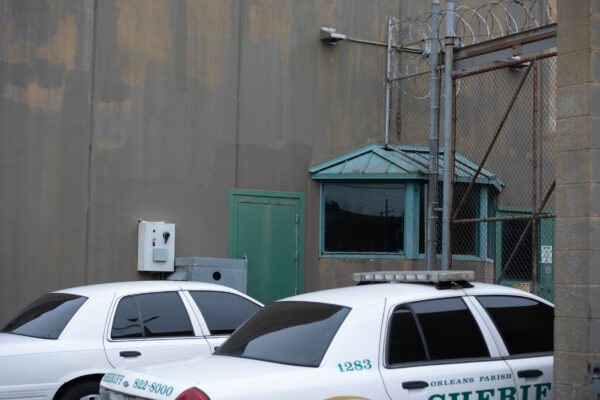As COVID-19 began to sweep through Louisiana, officials knew immediately that parish jails could be a vector for infection in surrounding communities, due to correctional staff moving freely between the jail and the community and the regular flow of people in and out of custody.
According to the ACLU of Louisiana’s report, “Justice Can’t Wait,” Louisiana’s pretrial incarceration rate is now three times the national average and the highest of any state on record since 1970, costing taxpayers nearly $290 million per year. A staggering 57 percent of people in jail had been arrested for non-violent offenses.
This pretrial incarceration crisis is devastating to families, communities, and taxpayers. It also continues to hinder our response to the ongoing public health crisis.
An epidemiological model released by the ACLU and academic research partners found that COVID-19 could claim the lives of approximately 100,000 more people than current projections stipulate if jail populations are not dramatically and immediately reduced.
Unfortunately, the lack of reliable and accessible jail data in Louisiana makes it impossible to know the number of people held in jail in each parish, how many were held on non-violent charges, and how many could be considered for release without jeopardizing public safety.
This week the ACLU of Louisiana testified in favor of House Bill 522, which would establish minimum requirements for data-collection by parish jails.
Currently, jail data are piecemeal across parishes, varying widely in quantity and quality. This lack of transparency has allowed Louisiana’s jail population to balloon unchecked in recent years, virtually invisible to the Legislature and the public. The COVID-19 pandemic has shown that this information gap also jeopardizes public health.
The result of this piecemeal approach is that no one has a regular, reliable accounting of how many people are held in jail, their ages and medical conditions, the reasons they are held, and how the size of the state’s jail population changes over time. Because we cannot compare jail populations across parishes, it also hinders our ability to identify best-practice jurisdictions that could serve as models elsewhere.
Establishing a standard, minimum set of data that each parish must maintain reflects basic principles of government transparency and public accountability. The bill would enable lawmakers and the public to evaluate the costs and effectiveness of Louisiana’s vast parish jail system, compare data across jurisdictions, and to understand long-term trends.
Without regular, standardized jail data, the public has no way to know our jail system’s effects on public safety, the economy, the health of those in custody, and how each might change or improve over time. To monitor these trends going forward, it is imperative that the Legislature establish minimum data-collection requirements for parish jails.
Make no mistake, standardizing jail data is only the first step. Our report lays out a sweeping set of reforms, from reducing arrests and shortening the time to charge and arraignment to combating wealth-based detention and ending the use of unconstitutional one-size-fits-all bail schedules.
But solving this crisis starts by understanding its true scope. House Bill 522 is a sensible step forward that would increase government transparency and accountability while enabling public officials to respond more effectively in the event of a crisis.
Louisiana taxpayers deserve nothing less.


